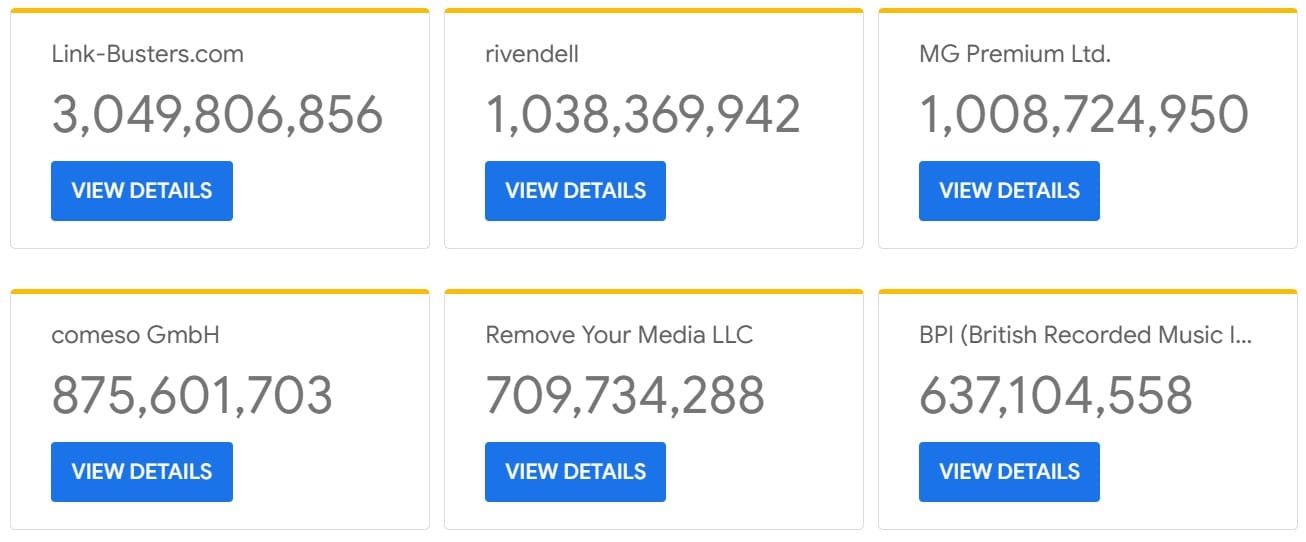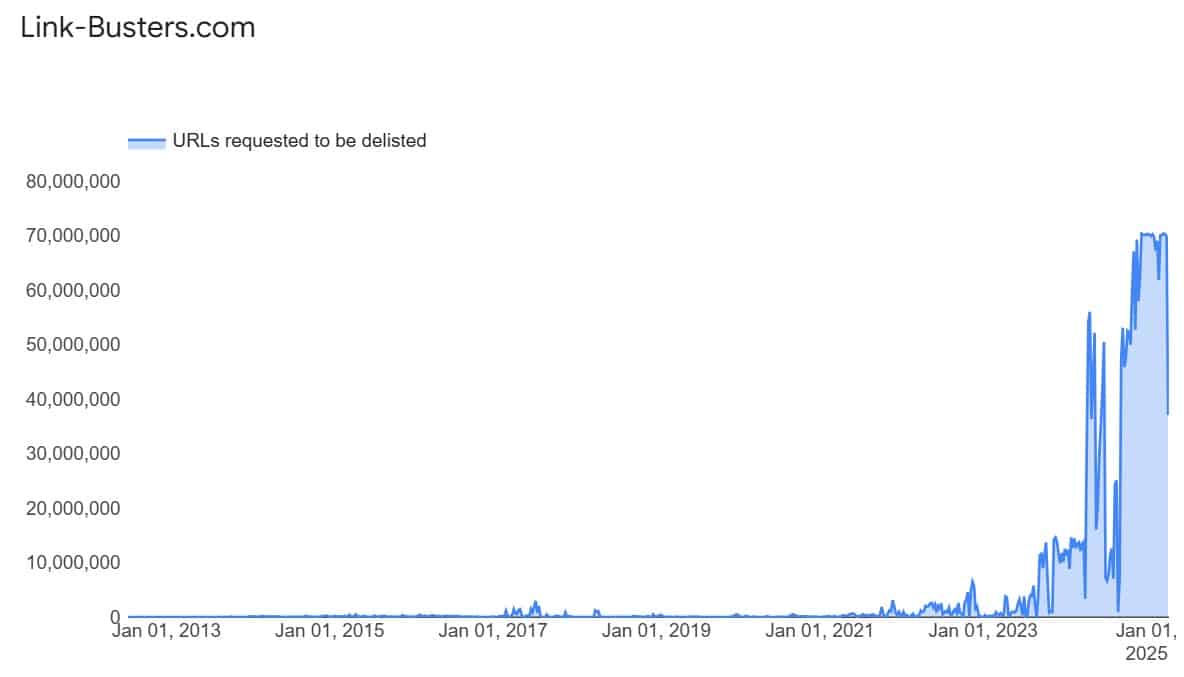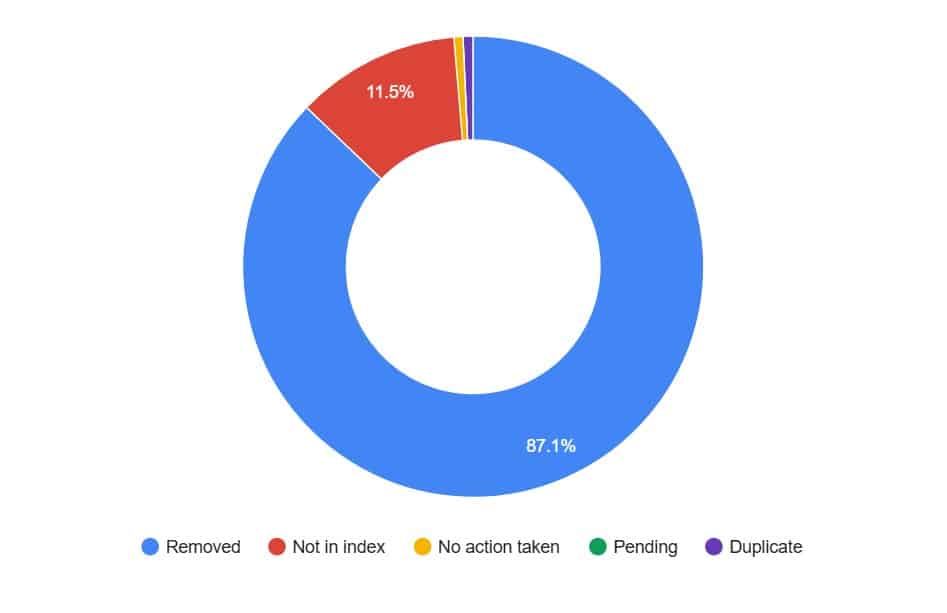Online piracy is a constant headache for copyright holders; one that’s particularly difficult to beat.
Due to those who run pirate sites often ignoring takedown requests, copyright holders also target search engines and other online platforms that inadvertently help users to find pirated content.
Search engine removals are not new and Google has documented this process for more than a decade. Initially, the company only received a few thousand removal requests per day, but this number has grown spectacularly over the years.
Link-Busters: Breaking Takedown Records
Copyright holders typically outsource this work to third-party companies that scan the web for links to pirated material. Link-Busters is one of these companies, one that has swiftly dominated the market in terms of output.
Domiciled in Amsterdam, Netherlands, Link-Busters has been in business for more than a decade. When sending a few million takedowns per year just a few years ago, it barely stood out. Today it can reach those numbers in a matter of hours.
Google’s transparency report reveals that the takedown company has just reached a new milestone after reporting its three billionth pirate URL to Google. This is up from ‘just’ one billion last July, which was already a record number for a reporting agency.

Today, Link-Busters is responsible for sending more than half of all takedown requests received by Google. Since the search engine started counting takedown notices in 2012, it has processed a little over 12 billion reported URLs, of which roughly a quarter appeared in the Dutch company’s requests.
Protecting Publishers in a Proxy Battle
These impressive figures stand out even more when considering that Link-Busters’ notices are largely sent on behalf of publishers. These include Penguin Random House, HarperCollins, Taylor & Francis, Hachette, all of which have been clients for many years.
The recent increase in takedown notices started to take shape in the fall of 2023, right around the time when the U.S. Government announced its criminal prosecution of Z-Library. This doesn’t appear to be a coincidence.

The Z-Library crackdown took down many of the site’s domain names, but it also spurred the launch of alternative platforms, including Anna’s Archive. And when Z-Library returned with hundreds of new domain names, each with millions of URLs, the need for enforcement action increased.
Paired with ongoing site blocking efforts, this resulted in an ongoing battle against proxies and alternative domains that continues to this day. A few weeks ago, Link-Busters was averaging more than 70 million reported URLs per week, which translates to 10 million per day.
Responses
Given this remarkable track record, we have reached out to Link-Busters on several occasions, hoping to get additional background and context on its achievements. Thus far, we’ve never received a response.
Luckily for Link-Busters, Google does respond to its takedown requests. Of all URLs reported, more than 2.6 billion were removed from Google search. Another 351 million have yet to appear in Google search, but were preemptively blacklisted.
Google refused to take down 19 million URLs (0.6%) and 21 million reported links (0.7%) were duplicates. This is a pretty decent track record in terms of accuracy.

Whether Link-Busters will continue to report a staggering number of pirate URLs will, ironically enough, largely depend on the survival rate of the pirate book libraries it targets. If these sites stop responding to the takedown efforts by launching new domains, potential targets will eventually disappear.
Thus far, however, there is no sign that Link-Busters will be out of business anytime soon.
From: TF, for the latest news on copyright battles, piracy and more.
Source : Link-Busters Reports its Three Billionth ‘Pirate’ URL to Google Search










